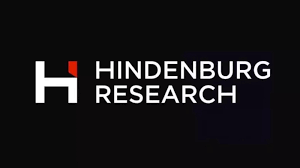Introduction
Hindenburg Research has become a household name, especially in the world of finance. Known for its controversial and hard-hitting reports, the research firm has made headlines by targeting some of the world’s largest companies. Recently, Hindenburg Research has turned its focus toward Indian companies, sending shockwaves through the Indian stock market and stirring up a hornet’s nest of debates and discussions.
Who is Hindenburg Research?
Founded by Nathan Anderson in 2017, Hindenburg Research is a forensic financial research firm. The company specializes in investigating and exposing corporate fraud, accounting irregularities, and other financial misdeeds. Hindenburg is best known for its reports on high-profile companies, which often lead to significant market movements. Before focusing on India, the firm had already built a reputation with its reports on U.S. and global companies like Nikola and Clover Health.
Hindenburg’s research methodology is rigorous, involving deep dives into financial records, interviews with insiders, and on-the-ground investigations. Their reports are detailed and meticulously crafted, often leading to significant drops in the stock prices of the companies they target. This is because Hindenburg typically holds short positions in the companies it investigates, profiting if the stock price falls after the release of their report.
The Big India Focus Hindenburg Research something ‘big’ soon on India
So, why has Hindenburg turned its attention to India? The answer lies in the rapid growth of Indian conglomerates and their increasing presence on the global stage. As Indian companies expand and attract more international investment, they also come under greater scrutiny from global financial watchdogs and activist investors like Hindenburg.
Indian companies, with their complex structures and often opaque financial dealings, present fertile ground for investigative research. Hindenburg’s reports on Indian firms have not only affected the stock market but have also raised questions about corporate governance and financial transparency in the country.
Hindenburg’s Report on Adani Group
One of the most high-profile cases in India involved the Adani Group, a massive conglomerate with interests spanning from energy to logistics. In early 2023, Hindenburg released a scathing report accusing the Adani Group of stock manipulation, accounting fraud, and other financial irregularities. The report sent shockwaves through the Indian market, wiping out billions of dollars in market value from Adani companies almost overnight.
The allegations were serious: Hindenburg accused Adani of using offshore entities to inflate stock prices and of engaging in a range of unethical practices. The market reacted swiftly, with Adani’s shares plummeting. However, the Adani Group vehemently denied the accusations, calling the report baseless and threatening legal action. They also pointed to their strong financial performance and their importance to India’s infrastructure development as counterpoints to the claims made by Hindenburg.
Other Indian Companies Under Hindenburg’s Scrutiny
The Adani Group wasn’t the only Indian company to face Hindenburg’s scrutiny. The firm has also targeted other major players in the Indian market, though not all have been as high-profile. Each report follows a similar pattern: detailed allegations of financial misconduct, followed by significant market reactions.
For instance, companies in sectors such as technology, pharmaceuticals, and real estate have found themselves under the microscope. Hindenburg’s reports have raised issues ranging from insider trading to complex web-like structures designed to hide debt or inflate profits. The companies targeted often react with a mix of denials, promises of internal investigations, and in some cases, legal threats against Hindenburg.
The Ripple Effects on the Indian Stock Market
Hindenburg’s reports have had a profound impact on the Indian stock market. The immediate effect is often a sharp decline in the stock prices of the companies targeted. But the impact goes beyond just market capitalization. These reports have shaken investor confidence, leading to increased volatility in the market.
Long-term effects include heightened scrutiny of Indian companies by both domestic and international investors. The controversy surrounding Hindenburg’s findings has also led to a broader conversation about corporate governance in India, with many calling for stricter regulations and more transparency in corporate practices. Furthermore, foreign investors, who play a crucial role in the Indian market, have become more cautious, weighing the risks before committing their capital.
Public and Media Reaction in India
The media in India has been abuzz with coverage of Hindenburg’s reports. News channels, newspapers, and online platforms have all covered the allegations and the subsequent market reactions in great detail. Public opinion has been divided. While some view Hindenburg’s reports as necessary checks on corporate power, others see them as attacks on Indian businesses by foreign entities.
The Indian government has also weighed in, with some officials expressing concern over the potential impact on the economy. There have been calls for investigations into the allegations made by Hindenburg, as well as for measures to protect Indian companies from what some perceive as predatory practices by foreign investors.
Legal and Regulatory Ramifications
The legal and regulatory fallout from Hindenburg’s reports has been significant. Several Indian companies have threatened or initiated legal action against Hindenburg, accusing the firm of market manipulation and defamation. However, such cases are often complex, involving multiple jurisdictions and legal frameworks, making them difficult to prosecute.
On the regulatory front, Hindenburg’s reports have prompted Indian authorities to re-examine their oversight of corporate practices. There have been discussions about tightening regulations related to corporate disclosures, insider trading, and the role of proxy advisory firms. Some experts believe that this increased scrutiny could lead to a more robust and transparent corporate environment in India.
Hindenburg’s Strategy and Tactics
Hindenburg’s strategy revolves around short-selling, a practice where investors bet against a company’s stock, profiting if the stock price falls. By publishing detailed reports that often reveal significant financial misconduct, Hindenburg aims to trigger a sell-off in the targeted company’s shares, which benefits their short position.
The Global Perspective
Hindenburg’s activities in India have drawn international attention. Investors and regulators around the world have watched closely, as the firm’s reports on Indian companies have broader implications for emerging markets. The Indian cases are often compared to Hindenburg’s previous high-profile investigations, such as those involving U.S.-based Nikola Corporation.
Read More SpiceJet Share Price Today: 10 साल में 2705% रिटर्न देने वाली कंपनी ने किया 250 करोड़ का सेटलमेंट
The impact of Hindenburg’s reports on global perceptions of the Indian market cannot be underestimated. As a key player in the global economy, India’s financial health is of interest to investors worldwide. Hindenburg’s findings have led to a re-evaluation of risks associated with investing in Indian companies, potentially affecting








